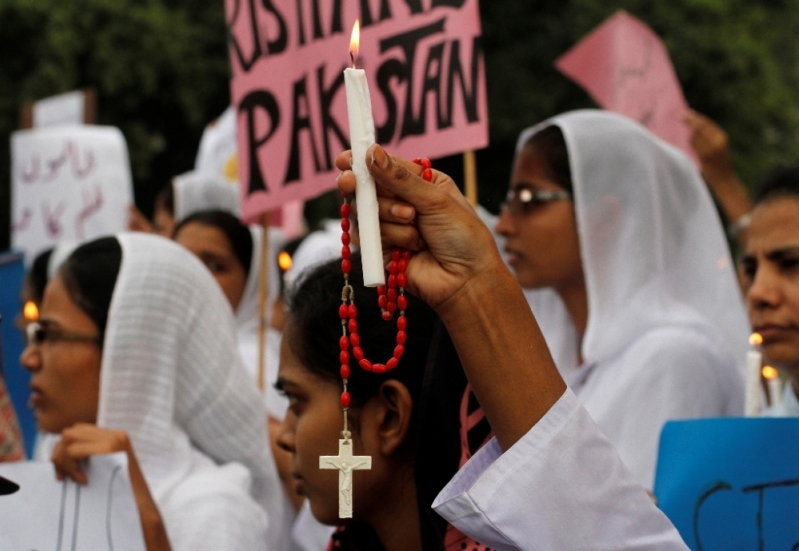
In a display of peace and solidarity, Muslim villagers in Pakistan have united to raise funds for a new church after their Christian neighbors lost their house of worship to a devastating storm.
According to the Daily Pakistan, people in the village of Khaksabad are donating both their time and money towards the building of a new mud chapel for the Christian community, after their last church was destroyed by monsoon rains.
"At first I didn't believe it when Muslim community leaders said they would build us a chapel," Christian laborer Faryad Masih told Anadolu Agency. "But to my surprise, construction work began within one month of the initial announcement. Our community's longtime dream is now coming true," he said.
The donations vary due to economic conditions, with one farmer giving 2,000 rupees towards the project, while successful local business owners have donated 10,000 rupees and as much as 30,000 rupees.
Mian Ejaz, one of the Muslim fundraisers, told Anadolu Agency that additional funds would eventually be raised to finish the chapel, which would include a medium-size prayer hall and another room.
"We had four mosques in the village but no place of worship for Christians, as most of them are poor and lack the funds to build a church on their own," Ejaz said. "We want to tell the world that Pakistan isn't a country of extremists - who are only a small minority - but a country of people who believe in religious tolerance and harmony."
"Moreover, the Christian world is doing a lot for Muslim refugees, so we should pay them [Christians] back in the same coin," he added, referring to the large number of Muslim refugees now trying to reach Europe from Turkey.
The Independent notes that the new chapel means Christians in the village will no longer have to rent or borrow a house to celebrate Christmas, Easter, and other holidays.
Fr. James told reporters that previously, Christians of the village were forced to use someone's home - or some other site - to perform prayers on holy days.
"Muslim residents of the town, however, offered to build us a chapel as a gift," he said. "We are thankful to our Muslim brothers for this wonderful gesture. It makes us feel proud," the priest said.
The uniting of the two religious group is monumental, as six years ago, Muslim mobs attacked the houses of known Christians in Gojra, the closest city to the village, leaving 10 dead. Seven people were burned alive in their houses and four churches were destroyed in nearby villages.
"After local riots we are trying to bring people together even more," villager Ijaz Farooq told the BBC. "We have increased our activity so we don't have to face something like that. By building this church we want to show that we are united as a community," he said.
Faryal Masih, a Christian villager who grew up in the community, told the outlet: "Since my childhood we have all lived together in this one place. We live with love [and] attend each other's weddings and festivals.
"We are together in times of happiness and grief. I pray that we never have to go through what happened in Gojra ever," he said.
Christians, Pakistan's largest religious minority, account for roughly 3 percent of the country's total population of some 180 million. Persecution watchdog Open Doors USA has ranked Pakistan 6th on its World Watch List of countries where it is most dangerous to be a follower of Christ.






